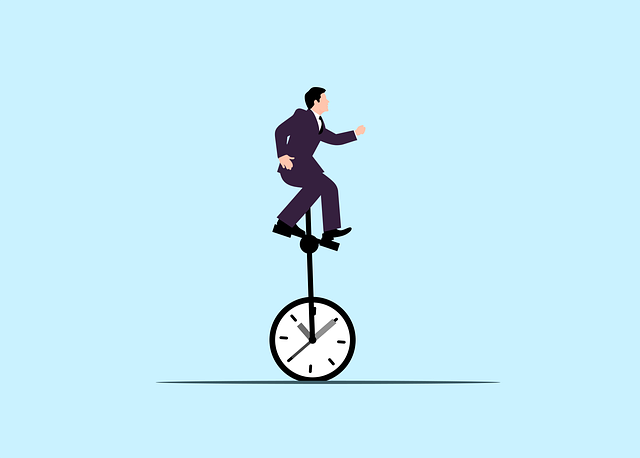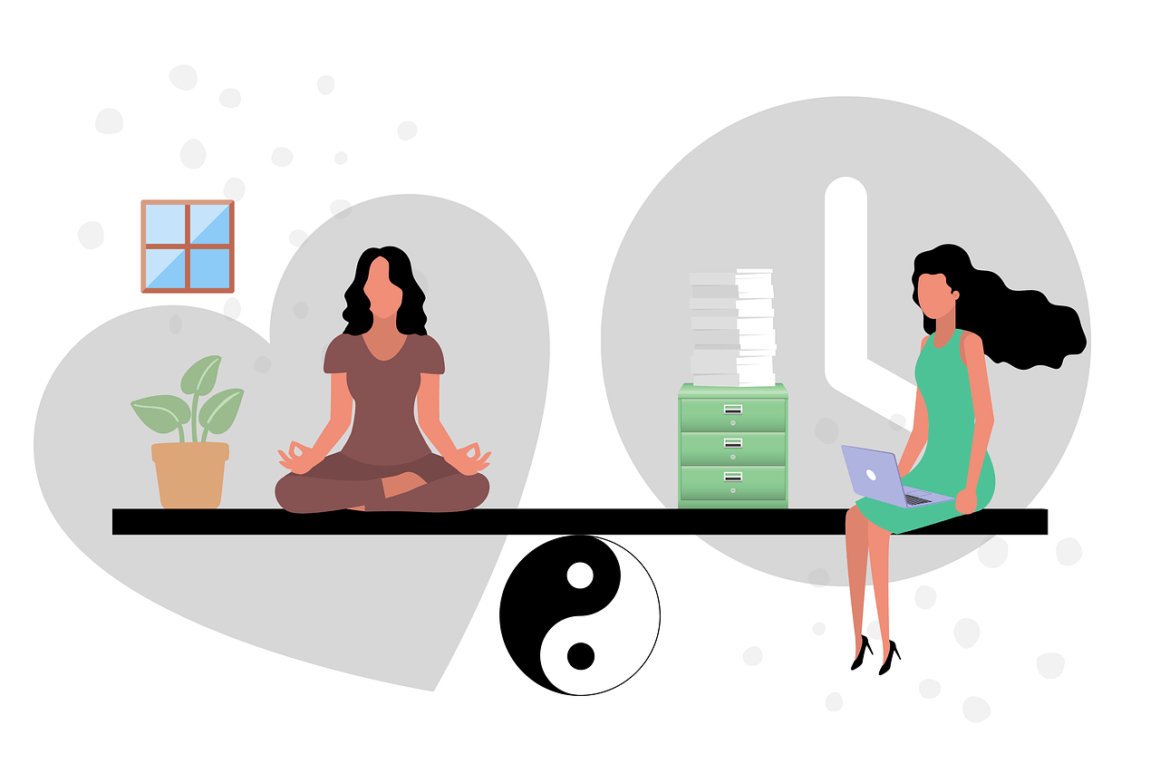Table of Contents Show
A perfect fit for a healthy work-life balance seems like an unclear and difficult goal. But still reaching its optimal level is necessary for a happier life and improved well-being of an individual.
In this blog post, we will explore why work-life balance matters, how to identify your priorities, strategies for achieving balance in your life, tips for balancing work and personal life effectively, and ultimately how to achieve long-term work-life harmony.
Why Work-Life Balance Is Important?
- Improved Time Management: Achieving a healthy work-life balance allows individuals to effectively manage their time, ensuring they allocate sufficient hours to both work and personal life. This not only prevents burnout but also enhances productivity and overall satisfaction.
- Better Health and Well-being: Maintaining a proper work-life balance is crucial for one’s physical and mental health. It enables individuals to prioritize self-care activities, such as exercise, relaxation, and spending quality time with loved ones. Striking this balance promotes better overall well-being and reduces the risk of stress-related illnesses.
Understanding the concept of work-life balance
Defining work-life balance involves managing the time and energy devoted to both work and personal life while maintaining a sense of equilibrium.
It requires recognizing and addressing the different aspects of our lives that need attention, such as career, family, health, and personal interests. To achieve a healthy work-life balance, it is essential to identify our priorities in order to allocate time and resources accordingly.
The impact of work-life balance on overall well-being
- Reducing stress and burnout: Achieving a healthy work-life balance is crucial for reducing stress and avoiding burnout. By managing time effectively, individuals can allocate adequate time to both work and personal life, preventing the accumulation of excessive stress. The ability to maintain a balance between professional commitments and personal responsibilities allows individuals to recharge their energy levels, leading to improved overall well-being.
- Improving mental health: Work-life balance plays a significant role in enhancing mental health. When individuals have enough time for relaxation, hobbies, and spending quality moments with loved ones, they experience reduced anxiety levels and increased feelings of happiness. Maintaining this equilibrium boosts productivity at work while promoting positive mental states outside of the workplace.
- Enhancing physical health: A proper work-life balance positively impacts physical health by allowing individuals to prioritize self-care activities such as exercise, healthy eating habits, and sufficient sleep. Engaging in regular physical activity not only improves fitness but also reduces the risk of developing chronic diseases like hypertension or obesity.
Identifying Your Priorities
Defining your values and goals is the first step in identifying your priorities. Take time to reflect on what truly matters to you and what you want to achieve in both your personal and professional life. This will help guide your decision-making process.
Knowing your values and goals will help you make decisions that lead to a more balanced and fulfilling life.
Assessing your current work-life balance is crucial in understanding where you stand currently. Evaluate how much time and energy you are devoting to different areas of your life, such as work, family, hobbies, and self-care. Recognize any imbalances that may exist and consider ways to realign them for a more fulfilling life.
Defining your values and goals
Identifying your core values is essential for defining your goals and creating a sense of purpose in life. Take the time to reflect on what truly matters to you, whether it’s family, personal growth, or making a positive impact in the world. By understanding your core values, you can align your actions with what brings you fulfillment and joy.
Setting both short-term and long-term goals allows you to have a clear direction and focus in life. Short-term goals provide immediate motivation while long-term goals help shape the bigger picture.
Remember to make them specific, measurable, achievable, relevant, and time-bound (SMART). This will give you a sense of accomplishment as you progress towards achieving these milestones.
Aligning your aspirations with professional ambitions is crucial for work-life balance. It involves finding harmony between career success and personal fulfillment outside of work. Assess how each aspect contributes positively or negatively to your overall well-being. Strive for integration rather than separation by seeking opportunities that align with both aspects of your life.
Assessing your current work-life balance
1. Evaluating time spent on work-related activities:
Take a moment to evaluate how much time you allocate to work-related activities in your daily life. Consider the hours spent on tasks, meetings, and emails. Are you finding a healthy balance between work and personal life? Assessing this aspect will help you identify any potential areas for improvement.
2. Analyzing the quality of personal relationships:
Reflect on the quality of your relationships and the amount of time you dedicate to nurturing them. Do your loved ones feel valued and supported? Take stock of whether you are investing enough time into fostering meaningful connections with family, friends, or partners. Remember that strong relationships contribute significantly to overall well-being.
3. Reflecting on physical and mental well-being:
Pause to reflect on your physical health as well as your mental state throughout each day or week. Are there moments when stress levels become overwhelming or when self-care takes a backseat? By assessing both physical and mental aspects, it becomes easier to recognize patterns that might be hindering a balanced lifestyle.
Remember, achieving optimal work-life balance requires continuous evaluation and adjustment based on our evolving needs and priorities over time.
5 Strategies for Achieving Work-Life Balance

Now let’s look at some of the strategies for achieving work-life balance in your lives.
1. Setting boundaries and managing time effectively
Establishing clear work hours is essential for maintaining a healthy work-life balance. By setting specific hours for work, you can create boundaries and ensure that your time is respected.
Creating a schedule and sticking to it further enhances productivity and prevents overwhelm. Avoid multitasking as it often leads to decreased efficiency and increased stress levels.
2. Learning to say no and delegate tasks
Prioritizing tasks is crucial to maintaining a healthy work-life balance. By assessing the importance and urgency of each task, you can allocate your time and energy effectively. Understanding your limits and workload capacity is equally important, as it allows you to avoid overwhelm and burnout.
Communicating assertively when declining additional responsibilities enables you to protect your boundaries while maintaining professional relationships. Learning to say no and delegate tasks empowers you to focus on what truly matters, leading to a more balanced and fulfilling life.
3. Creating a support system and seeking help
Building relationships with colleagues is essential for collaboration and support in the workplace. By fostering strong connections, you can create a network of individuals who can offer assistance and guidance when needed.
Utilizing technology tools such as project management software or communication platforms can enhance productivity by streamlining tasks and facilitating efficient work processes. Seeking guidance from mentors or professionals who have experience in your field allows you to gain valuable insights and advice to navigate challenges effectively.
4. Taking Care of Yourself
Taking care of yourself is essential for maintaining a healthy work-life balance. Prioritizing self-care activities allows you to recharge and rejuvenate, ensuring that you have the energy and focus to excel both in your personal life and professional endeavors.
Engaging in regular exercise, practicing mindfulness, and setting aside time for hobbies or relaxation are all effective ways to prioritize self-care.
Maintaining a healthy work-life balance mindset is equally important. It involves setting boundaries between work and personal life, learning to say no when necessary, and delegating tasks when possible.
By valuing your well-being and recognizing the importance of maintaining a balanced lifestyle, you can successfully navigate the demands of work while still finding time for yourself.
5. Maintaining a healthy work-life balance mindset
Setting clear boundaries between your work and personal life is essential for maintaining a healthy work-life balance mindset. Clearly define when you will be available for work-related tasks, and commit to not bringing work into your time.
By establishing these boundaries, you can protect your personal space and ensure that you have dedicated time for rest.
Designing a schedule that incorporates regular breaks and downtime is key to maintaining a healthy work-life balance mindset. Make sure to plan short breaks throughout the day as well as longer periods of leisure during evenings or weekends.
These moments of respite are vital for recharging your energy levels, reducing stress, and finding inspiration outside of the demands of work.
Tips for Balancing Work and Personal Life
Here are some of the tips you can use to maintain a healthy work and personal life balance.
1. Establishing a work-life balance routine
Setting clear boundaries between work and personal life is essential for achieving a healthy work-life balance. By defining specific times for work and leisure, you can create a clear separation that allows you to fully focus on each aspect without feeling overwhelmed or burnt out.
Additionally, creating a schedule that includes dedicated time for relaxation and pursuing personal hobbies or interests helps to rejuvenate your mind and maintain a sense of fulfillment outside of work.
2. Utilizing technology and tools for productivity
Using task management apps or software can greatly enhance productivity by helping you stay organized and prioritize tasks effectively. These tools allow you to create to-do lists, set deadlines, and track progress, ensuring that nothing falls through the cracks.
Maximizing the use of calendar applications is another key strategy for boosting productivity. By scheduling appointments, meetings, and personal activities in your calendar, you can ensure that your time is optimized and commitments are not overlooked.
Exploring communication tools that streamline collaboration and reduce unnecessary interruptions is essential for maintaining focus and productivity. Platforms such as project management software or team messaging apps enable efficient sharing of information, delegating tasks, and keeping discussions organized.
By harnessing the power of technology tools designed specifically for productivity enhancement, you can optimize your work processes and achieve a greater sense of balance in both professional and personal aspects of life.
3. Finding work-life balance in a remote work environment
Establishing a designated workspace at home is crucial for maintaining work-life balance in a remote work environment. By creating a physical separation between your professional and personal areas, you can mentally switch gears and focus on your tasks without distractions.
Similarly, implementing regular breaks throughout the day is essential to prevent burnout. Taking short breaks allows you to recharge, regain focus, and maintain productivity levels while working remotely.
Additionally, setting clear expectations with colleagues regarding availability during non-work hours helps establish boundaries and ensures that your time is respected.
Achieving Long-Term Work-Life Balance
If you cannot maintain the work-life balance in the longer term, then it wouldn’t be of any benefit to you.
1. Reevaluating and adjusting your work-life balance over time
Achieving long-term work-life balance requires constant evaluation and adjustment. As circumstances change, it is essential to reassess your priorities and make necessary changes to maintain equilibrium. Regularly reflect on your goals, values, and overall well-being to ensure that your work-life balance remains aligned with your evolving needs.
Assessing your current work-life balance is crucial for maintaining a fulfilling life. Take the time to reflect on how much time and energy you are dedicating to both work and personal life. Identify areas that need improvement, such as excessive overtime or neglecting self-care. From there, set realistic goals that allow for a healthier balance between your professional responsibilities and personal well-being.
2. Creating sustainable habits and routines
Establishing a consistent schedule is key to creating sustainable productive habits and routines. By setting specific times for work, leisure, and self-care activities, you can create a sense of structure and balance in your daily life.
Prioritizing self-care activities is another crucial aspect of maintaining work-life balance. Taking time to care for yourself not only improves your well-being but also enhances your productivity and overall quality of life.
Implementing effective time management strategies such as prioritizing tasks, minimizing distractions, and delegating responsibilities can help ensure that you make the most out of each day while still maintaining a healthy work-life balance.
3. Continuing to prioritize work-life balance as circumstances change
Adapting to new roles or responsibilities at work or home requires a flexible approach to maintaining a work-life balance. By reassessing your priorities and setting realistic expectations, you can ensure that both professional and personal obligations are met.
Finding support systems such as delegating tasks, utilizing technology tools, or seeking assistance from family and friends can help manage additional demands effectively.
Nurturing relationships with loved ones amidst changing circumstances is crucial for maintaining a harmonious work-life balance.
Taking intentional time to connect with family and friends through quality conversations, shared activities, and making memories together strengthens those bonds. Prioritizing regular date nights or weekend getaways allows for the rejuvenation of the mind while fostering meaningful connections outside of the workplace.
Conclusion:
Achieving and maintaining work-life balance is crucial for overall well-being and satisfaction. By evaluating various aspects of your life, creating sustainable habits and routines, and continuing to prioritize work-life balance as circumstances change, you can ensure a harmonious and fulfilling life.
Remember to prioritize self-care, seek support from others, and nurture your relationships with loved ones. By doing so, you can lead a more balanced and fulfilling life both personally and professionally. Share your tips at hi@productivityshift.com










